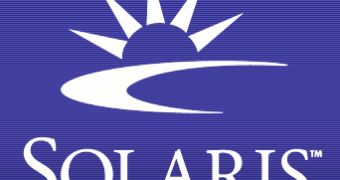The business partnership between IBM and Sun Microsystems could be a lifesaver for the Solaris developing company that has just currently recovered from a long string of bad years. The partnership is all about running the Solaris operating system that is developed by Sun on top of x86 compatible hardware and not on the SPARC platform.
IBM is not the first company to sell x86 compatible hardware as servers that are able to run Solaris, since HP - another big player on the server market - is doing that for over a decade and making good money in the process. Sun made the first version of the Solaris operating systems compatible with the x86 hardware in 1992, version 2.1, but the offered support was spotty at best and it was always downplayed by the SPARC intended version. The Solaris 10 version, which appeared in 2005 changed all that, making the x86 version as good as the SPARC one. As the x86 Solaris got better over time, HP's interest in x86 compatible servers running Solaris grew and until now, it is said that the company sold hardware of up to $1 billion. "We've been pretty bullish about it," Paul Miller, vice president for enterprise storage and servers marketing at HP told in an interview and was cited by the earthweb site. "It's been a good business for HP. If you look at the IDC numbers, we can claim more people run Solaris on ProLiants than any other x86 out there."
In order to make the native SPARC applications run on top of the x86 hardware, HP uses an emulation technology from Transitive, that provides the technology for Apple's Rosetta software suite, allowing programs designed for PowerPC to run on Intel based Macintoshes. "We've taken 16-CPU SPARC servers that are five years old and put the apps on a four-socket Xeon or Opteron and the customers have more headroom than they know what to do with," Miller boasted. According to him, HP's server offer is better that everything Sun has, as its x86 offering is something new having launched its Opteron based servers only 18 months ago. Sun still has no line of servers equipped with Xeon processors. In contrast, HP has a much greater experience and variety of offerings:"15 different platforms in x86, from SMB towers to four-socket AMD servers". As Miller says, the industry seems to shift from the old Unix based servers to systems running the Linux operating system, even if the transition from Unix to Linux will most probably take a couple of years.
According to Jean Bozman, vice president at IDC, the IBM and Sun alliance is an opportunity for Sun to increase its software revenues and has nothing to do with the hardware platform. The Sun CEO Jonathan Schwartz is known for its position of supporting the software growth. "This is not about hardware. This is about growing Sun's software business and software revenue, and there's so much x86 out there Jonathan thinks there's plenty of upside."

 14 DAY TRIAL //
14 DAY TRIAL //